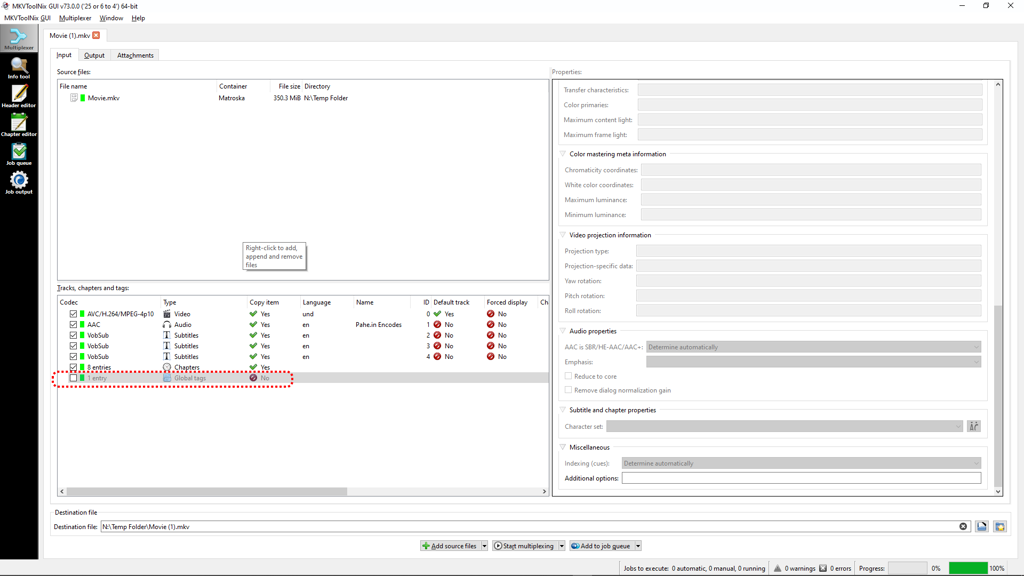I just tried opening a video I had gotten from Pahe many years ago, from an external USB drive, and have now gotten a Windows Security warning, ‘Do you want to open this file?’ (see top part of attached image)
I moved the file to another folder and renamed it from the original title (it was an episode of ‘The Blacklist’) to 'Movie.mkv and still get the warning. All files in the folder (22 of them) give this warning, plus some other videos I got from Pahe in the past. Clicking the checkbox ‘always ask before opening this file’ does not keep other files in the same folder from also showing the warning. I tried changing the default video player to PotPlayer, same warning comes up.
The only thing I can think of is that in the metadata of the file (bottom part of image), under ‘Encoded By’, it shows a URL, ‘pahe (DOT) in and pahe (DOT) li’
Is there any way this could actually be a security issue? If not, is there a way to ‘green light’ my MKV files on my local drives?
Thanks in advance


I used MKVToolNix to checkout the video file. Inside the MKV container appears to be: an H264 video file, an AAC audio file, 3x VobSubs, chaptering info, and ‘global tags’. If I uncheck the ‘Global Tags’ entry and save the rest an a new MKV, the video opens in Windows 10 without any warning message from Windows Security.
I don’t see anything in the properties data for ‘global tags’ that looks suspicious, or even has any entries at all (such as for timestamps, video properties, color information, color mastering meta information, etc. I don’t know WHY having a ‘global tags’ “thing” in the MKV is causing the security warning.
Unless there’s a way to have Windows ‘ignore’ the ‘global tags’ part of an MKV, I guess I will just re-multiplex the videos with that part removed.
(Sorry it took so long to reply, I didn’t have my lemmy password saved to my online password manager and had to wait until I got back to my media PC to update the posts)
Thanks for the replies
I suspect what you really did by removing the global tags was change the file’s hash to something brand new so it was no longer on Defender’s list of suspicious files. Try removing different aspects of the MKV or add a random text file as an extra subtitle and see if any of those MKVs are also flagged; they probably won’t be.
If it’s this, it’s likely that the MKV file OP had just happened to hash-collide with a different known malware and caused Defender to recognize it.